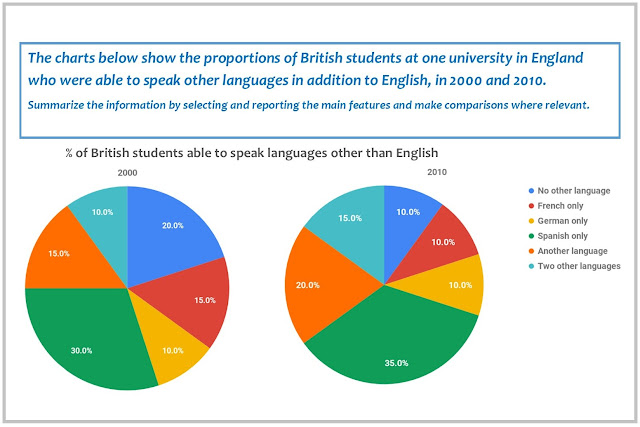An interview with a Russian software engineer working in Ireland
1 Tell my readers a bit about yourself.
I am software engineer. About two years ago I moved to Ireland from St Petersburg when got an offer from Microsoft.2 Do you like living in Ireland?
Yes, I do. It became better after I started to explore it - travel around my home area and to the other parts of Ireland, started to pay more attention to the things around me and enjoy the nature, like Dublin mountain which is just behind my house.But there are a lot of things that might annoy you first time. Left side driving, housing problems and long term rent contracts. The rent prices itself - I was really surprised when realized that it will cost about half of my monthly salary to rent an apartment here.
3 Tell my readers about your background in learning English.
I studied English in school and university as foreign language, but never had special or private courses. It was a real disaster when I moved here and I still suffer a bit.4 Do you find it difficult to live in an English speaking country? What are some of the challenges you face?
There are a lot of things that might be annoying, like immigration bureaucracy, housing problems, lack of public transportation and car oriented infrastructure. But the biggest one is language, of course. Even if you know that you will be able to explain yourself and get what you need, you ignore a lot of possibilities and activities just because your brain unconsciously tries to avoid additional effort to understand or express your mind in non-native language. Basically, you feel tired after just listening to others for continuous time, since it involves way more concentration effort for understanding.5 How has your English level improved since you moved to Ireland? What skills have improved?
It hasn’t improved dramatically, but I feel like I am able to speak a little bit easier and more expressively. Maybe I’ve even lost some grammar rules and compose even worse sentences now, but emotional and live speech works better than grammar :).6 What would you say people do wrong when they learn English?
Association with native words, instead of the subject or feeling itself. It is not only because there is no direct mapping sometimes, but such decrypting is too slow to suit for real life conversation. The path throughout translation is too long for keeping natural reaction to the other person in a conversation.I don’t know how it is now, but when I studied language in school or university the approach to teaching was like as you learn a science subject, rather than a language. It was an attempt to formalize live language and learn it by rules achieved from that formalization. As result, in best case you received robotic language which is then hard to adapt for life.
7 Give my readers a couple of tips on learning English effectively.
To memorize or reflect an entity, it’s better to have picture in you mind, instead of association with the word or phrase in native language. For instance, you could imagine a cup instead of remembering it as кружка. Or you could imagine any association for abstract words.
Do more activities which involve speaking.
The other important thing is simply work experience, which you can get in such companies like Microsoft. It is also possible to make contacts and friends around all the world working in such huge international company.
UPD: Petr now lives in Zurich and works for Google. Read his second interview to find out what it's like to live in a country whose language you don't speak.
Follow Petr on Instagram to see his amazing photos of Ireland and Switzerland.
You might also like my post "Living in an English-speaking country and your English level."
Do more activities which involve speaking.
8 Anything else?
I’d recommend to pay more attention to the language of the country where are you going to work before relocation. It takes a lot of effort to cover the amount of doings and do your primary job when you come. There will be no better opportunity to learn the language than it was at home. The environment helps, but time works against you.9 What is your overall opinion on moving abroad? Is it worth it? What did you learn from the experience?
It is completely personal and depends on your focus in life. I take it more like adventure, search for new possibilities and challenges. Living abroad makes you think widely, you begin to notice your own stamped thoughts and behavior patterns which people invents for themselves living in any particular location and society for a long time. It's not only about the language or other country’s laws or traditions; changing the place and environment makes you able to notice variety and changes your way of thinking.The other important thing is simply work experience, which you can get in such companies like Microsoft. It is also possible to make contacts and friends around all the world working in such huge international company.
10 Thank you so much for this insightful interview!
My pleasure.UPD: Petr now lives in Zurich and works for Google. Read his second interview to find out what it's like to live in a country whose language you don't speak.
Follow Petr on Instagram to see his amazing photos of Ireland and Switzerland.
You might also like my post "Living in an English-speaking country and your English level."





Comments
Post a Comment